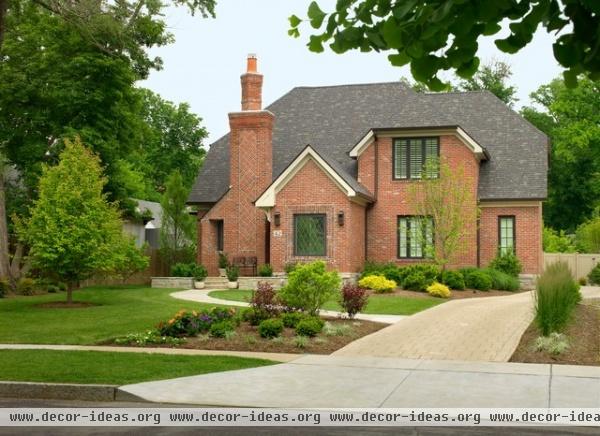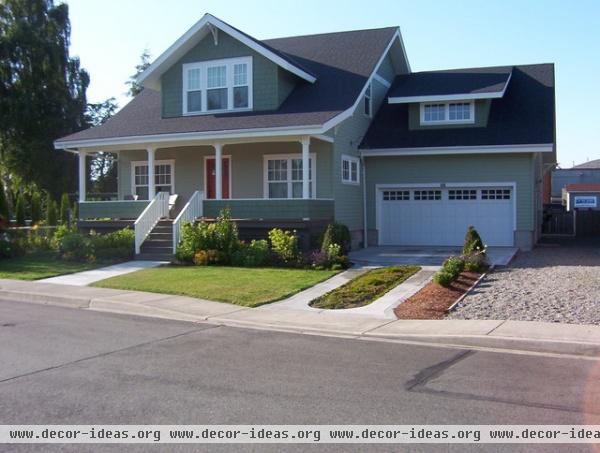Want a Cleaner, Safer Neighborhood? Show You Care
If you saw someone accidentally drop a bunch of oranges on the sidewalk, would you help pick them up? A recent study shows that 40 percent of passersby would. What’s incredible, though, is that for passersby who had witnessed an act of positive social behavior taking place nearby — like someone sweeping debris from the street — prior to the oranges' dropping, that percentage more than doubled, to 82 percent of people stopping to help.
Good social behavior spreads, whether we realize it’s influencing us or not. The findings, published by Kees Keizer, a behavior scientist and professor at the University of Groningen, Netherlands, confirm the belief that setting a good example can positively affect others. But this study ventures even further to show that when we observe others caring about society, we end up caring, too.
This concept has broad applications, but in our own neighborhoods is a good starting place. Want a nicer street? Show your neighbors that you care about keeping it clean and safe; they might get the message and follow suit. “Showing that people care for norms apparently has a big influence on other people in the neighborhood conforming as well,” Keizer says.

I know what you’re thinking. How could one person impact a whole neighborhood? Think back to that street sweeper in the orange experiment. “That one person sweeping the pavement had big influence. The beauty is that it’s one person doing that and giving an example. So you have an influence. And that should be a positive message there,” Keizer says.
He's not the only one who's picked up on the fact that we can influence others through our behavior. Opower is a software company that collects data to help homeowners save money and energy through their utilities. It’s also running the largest behavioral science program in the world, analyzing utility data from 18 million homes worldwide. It uses that info to influence people to use less energy. How does Opower do it? For starters, the company tells people when their neighbors are using less energy than they are.
The idea is based on research done by Robert Cialdini, a professor, that shows that neighbor comparison effectively motivates people to save energy. The behavioral science term for this type of comparison is "peer proof." “It’s a matter of understanding what your community is doing and feeling a normal interior pressure to do what your peers are doing,” says Roderick Morris, senior vice president of marketing and operations at Opower; he calls Opower a behavioral science company.
To date the firm has saved users $320 million. “In 2013 we saved enough energy to take the city of Sacramento off the grid for a year,” Morris says.

How to Use Behavioral Science to Better Your Neighborhood
Let your neighbors know you care. If your neighbors see that you care, they’re more likely to care as well. That means don't hide your actions from public view. The more your actions are on display, the better. Here a homeowner has created corrugated metal bins for trash and recycling to help keep the street clean. The extra effort signals to neighbors that this homeowner cares about the appearance of the street, a behavior that's likely to be replicated.

Ever wonder why recycling bins are often brightly colored? It's actually a signal to others that you're being a good neighbor, and hopefully others will follow. “In part it’s easy for people to see that their neighbors are putting them in the street," Morris says. "It’s a normative effect. And, emotionally, they don’t want to be different from the norm.”
Pick up litter. There’s just something about litter that encourages disorder. As you walk through your neighborhood or on your street, make a point to pick up trash whenever possible. It’s all about making other people think of these norms and rules as important. “If you know that all your neighbors think it’s important to have a clean street, it’s going to be harder to litter in that environment," Keizer says. "So communicating that we care about this is key.”
Organize a street-cleaning day. Get your neighbors involved. Even if everyone doesn't participate, the fact that people know their neighbors care about having a clean street can influence their behavior.

Pick up your toys. Parents pick up after their kids to set a good example. They show children how to do it and encourage them to do it, too. The same applies for adults. If you want a nice street, start with your own home. Keep your yard clear of debris and leaves, and keep things mowed and trimmed. Don't leave your trash cans out for long stretches of time. “The cleaning-up part makes others not transgress as easily,” Keizer says.
Erase graffiti in communal areas. Nobody wants to be the neighborhood grouch. After all, it’s just some innocent kids writing on the community mailbox, right? Well, yes and no. Keizer found that things like graffiti have a spreading effect on social norms.
Keizer has also published a series of studies in the journal Science, showing the negative side effects of graffiti on walls and unreturned shopping carts. Not only did people copy the behavior, but there was a spreading component, too. “People are more likely to graffiti when there’s graffiti there, but also litter and be more likely to steal," he says. "This suggests that if you keep your street neat and clean, you might help in a way reduce other transgressions as well."
You might be thinking that European neighborhoods are vastly different from American ones. But in fact, at the root of it, we’re all the same. “Our behavioral science works the same way in Europe and Asia, the same as in North America," Morris says. "It’s the same no matter what. Culture, language and customs are all layered on top of the same part of the brain we share, which drives a lot of our decisions.”

Have a group mentality. We often live in our own little bubbles. As a result, we might not know if we’re causing a problem with our neighbors. By meeting with neighbors regularly to talk about concerns, people are more likely to think about the group as a whole than in terms of individuals.
Maybe you didn’t realize how frustrated your neighbors were by that one tree branch hanging from your yard that dropped berries onto the sidewalk and cars. After hearing this concern, you might consider trimming back the tree. Maybe the neighbors would even help pitch in to pay for it. This would reinforce a group mentality for future behavior in your neighborhood. “The more you think a certain behavior is common or approved of, the more likely other people will pick it up," Keizer says.
More about neighborhoods:
15 Ways to Make Your Neighborhood Better
6 Tips for Teaching Your Kids to Be Good Neighbors
How to Get Along With the Neighbors — and Live Happier at Home












